Search engine optimization is an essential part of online marketing and advertising. If you’re looking to work in SEO as a career, it’s a good idea to have your resume ready with all the skills and experience you can offer. An excellent overview showcasing your best qualities will give you the best chance of being noticed by prospective employers in this competitive field. We know how important your resume is when applying for jobs. It is, after all, the first introduction to any potential employer you may encounter. A well-written resume, regardless of its length or format, will give you that edge over other applicants. A perfect resume will help you secure that job interview and impress the hiring manager enough to get a second interview.
SEO Resume Example

Download This SEO Resume as PDF
Search Engine Optimization Specialist Resume Example
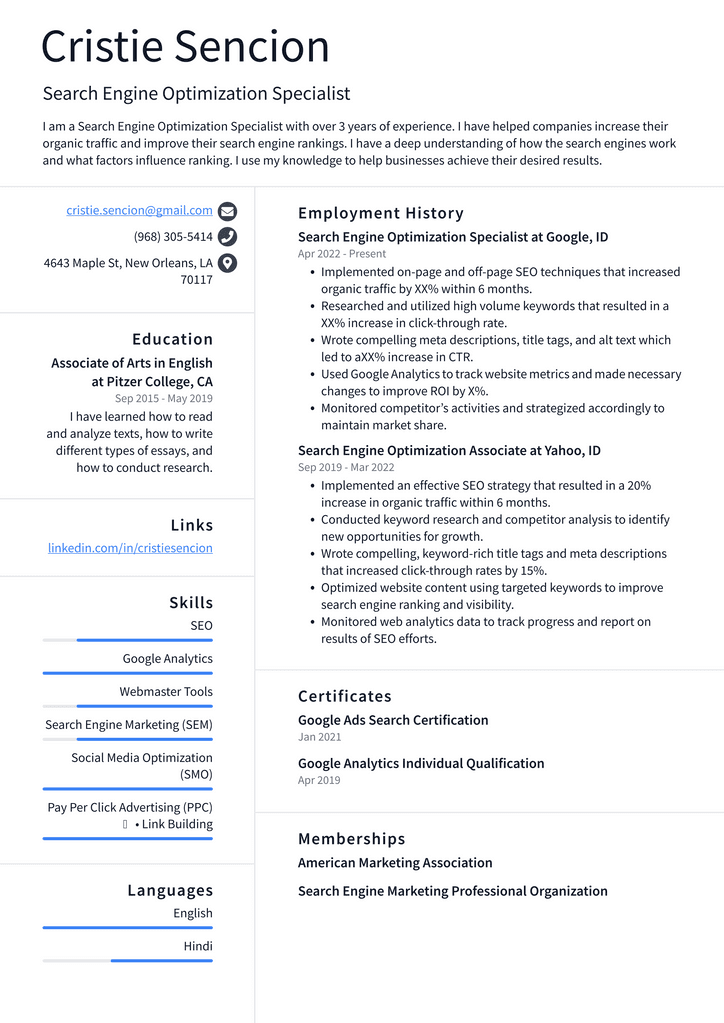
Download This Search Engine Optimization Specialist Resume as PDF
Internet Marketing Specialist Resume Example
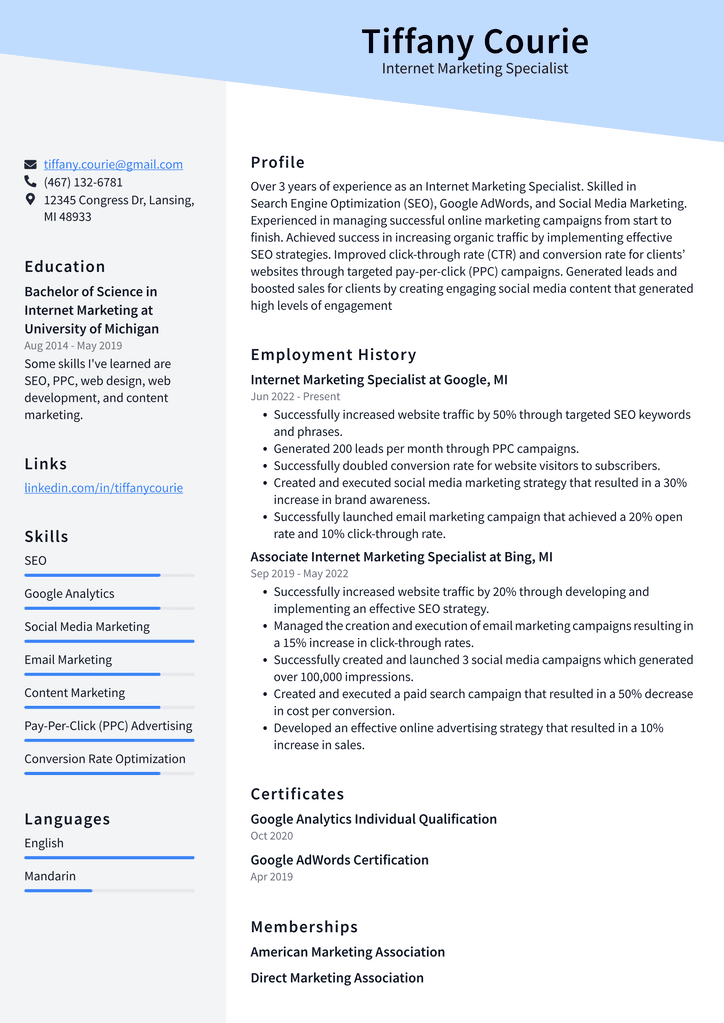
Download This Internet Marketing Specialist Resume as PDF
Search Engine Marketing Specialist Resume Example
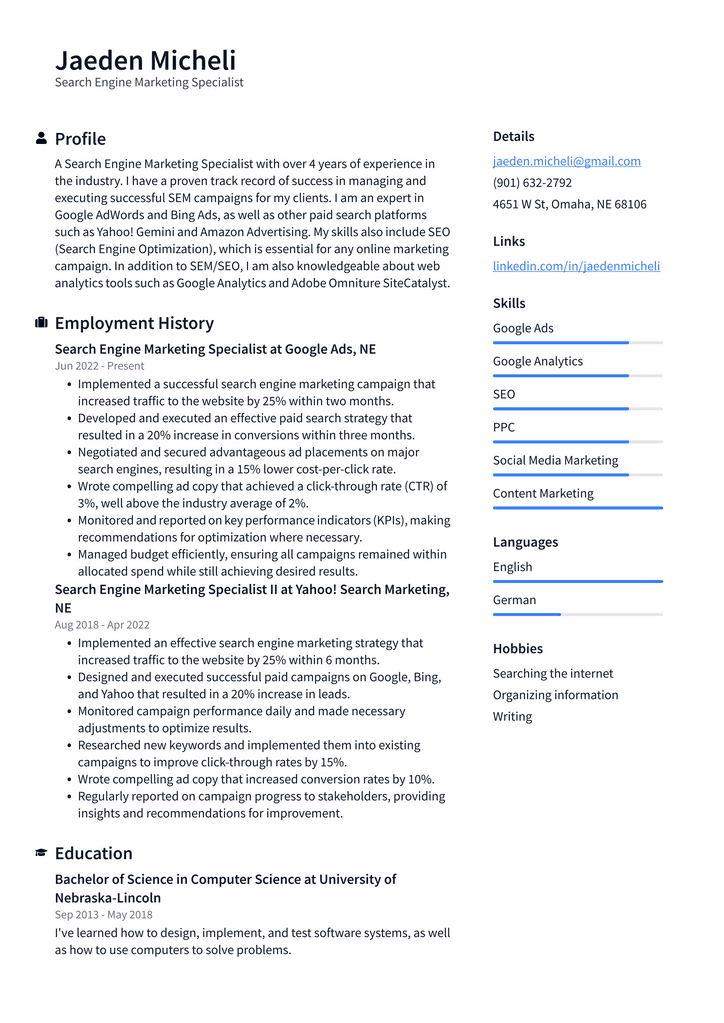
Download This Search Engine Marketing Specialist Resume as PDF
Web Marketing Specialist Resume Example
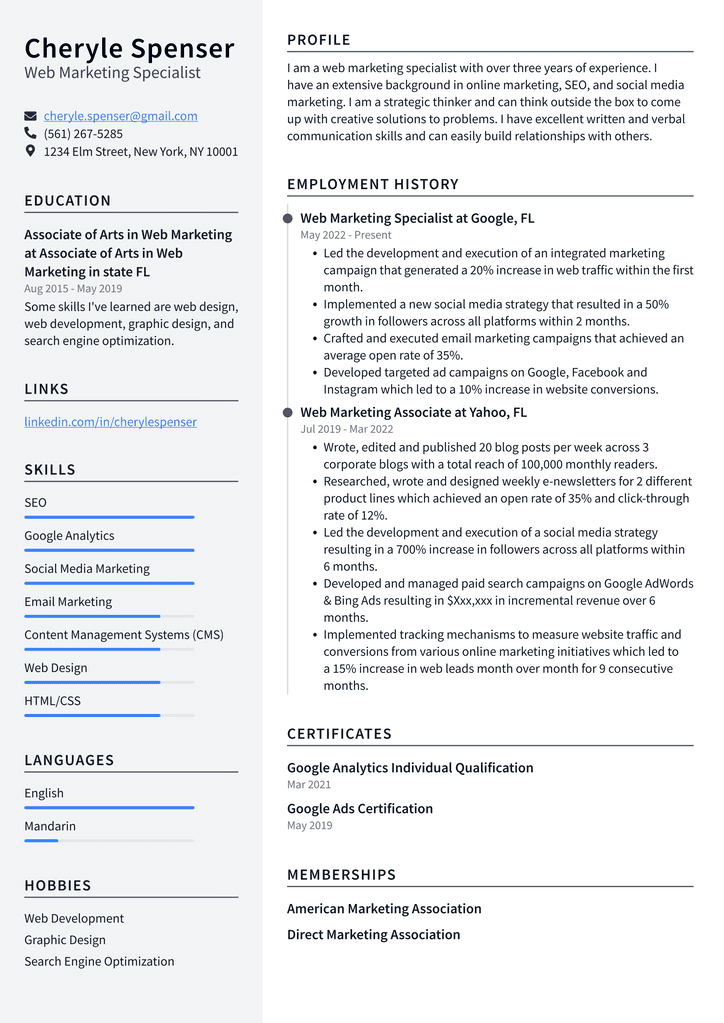
Download This Web Marketing Specialist Resume as PDF
Online Marketing Specialist Resume Example
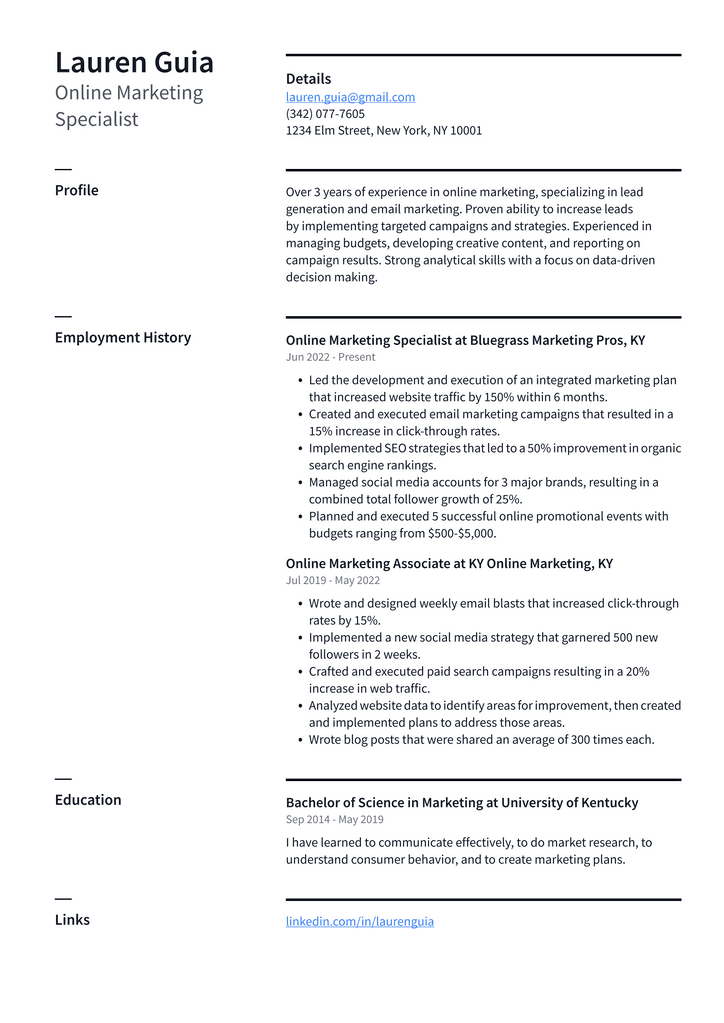
Download This Online Marketing Specialist Resume as PDF
SEO Consultant Resume Example
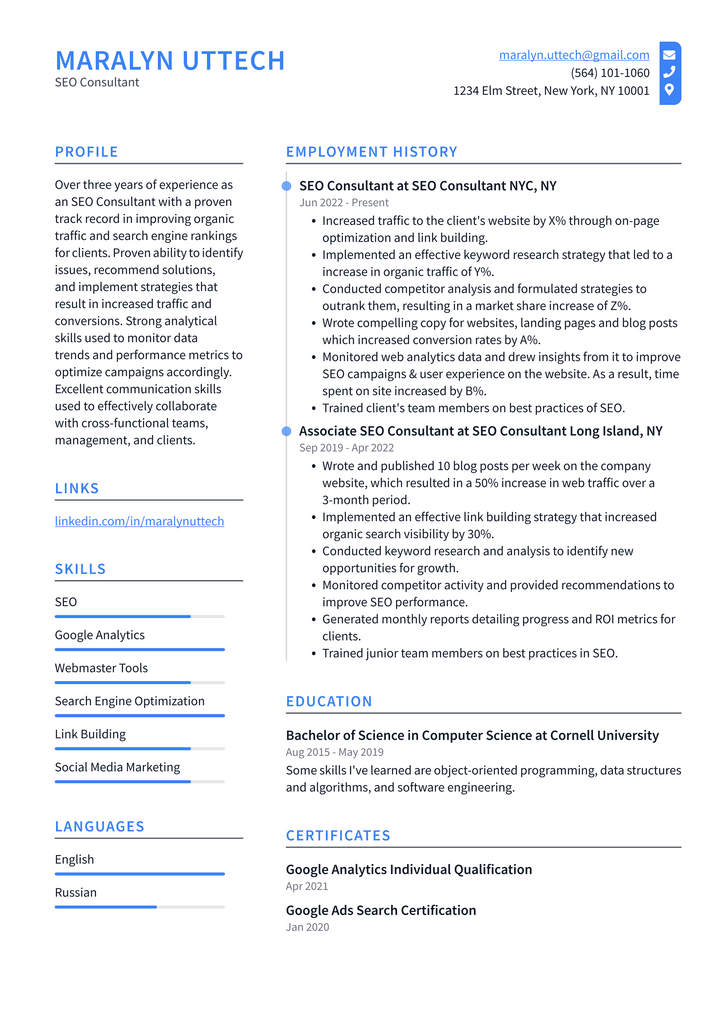
Download This SEO Consultant Resume as PDF
Before you start: Know what to include in your SEO resume
Although every resume is different, there are a few standard elements that you should never leave out of your resume. These include your personal information, education and work experience, skills and abilities, and any additional information relevant to the job. For example, your data might include your full name, address, phone number, and email address. Education and work experience should consist of the institutions you attended and the degrees/certifications you received. The skills and abilities section is where you can list any specialties or expertise you have that will make you a good fit for the job in question. Other information that could be relevant to the job could include your availability, all relevant job experience, and any skills that aren’t included in the above categories.
Resume format and layout
Remember that the first thing an employer sees is your resume. So make sure that it is highly readable and error-free. You can do a few things to ensure that your resume is ready to go:
- Make sure that it is in the proper format. Many employers have strict requirements regarding how resumes should be formatted, so check out our guides to the best resume formats to ensure your resume meets the requirements.
- Make sure that it is thoroughly proofread. Have someone else look at your resume, or take advantage of the many online tools that can help you find any errors.
- Make sure that it is tailored for the job you are applying for.
Your resume should highlight the skills and experience that are most relevant to the job in question.
Sum up your skills and experience
Your resume should be your go-to place to showcase all of your skills and experience that are relevant to the job you’re applying for. While the best resumes will be tailored to every specific job, it’s also helpful to have a few go-to skills and experiences to list on your resume whenever they are relevant. Make sure you have all relevant skills and experience listed, but be concise. Your resume should be at most two pages long, and the more skills, education, and experience you have, the shorter your resume should be. Employers don’t want to wade through a massive list of everything you’ve ever done. Instead, they want to see what you can bring to the table right now. So keep it short and sweet, and leave enough room to discuss your strengths and growth potential.
Confirm your growth potential
It’s essential to not only have a ton of experience in a particular field but also to show that you have the potential to grow in that field. The best way to do this is to include a short statement about your goals and ambitions in your resume. You can also have your long-term career goals and what you hope to accomplish in the industry in your resume if relevant to the job you are applying for. Employers want to know that you are invested in their company and are likely to stay with the company for a while. You can show this by including your long-term career goals in your resume and showcasing your interest in the company and its industry in your cover letter and interviews.
Conclusion
Your resume is the first impression that you make on any potential employer. Make sure that it is as detailed and thorough as possible so that you can highlight all of your qualifications and skills. Remember that every resume is different, but there are a few standard elements you should never leave out of your resume, including your personal information, education and work experience, skills, and additional information relevant to the job. Your data might include your full name, address, phone number, and email address. Education and work experience should consist of the institutions you attended and the degrees or certifications you received. The skills section is where you can list any specialties or expertise you have that will make you a good fit for the job in question. Other information that could be relevant to the job could include your availability, all relevant job experience, and any skills that aren’t included in the above categories.